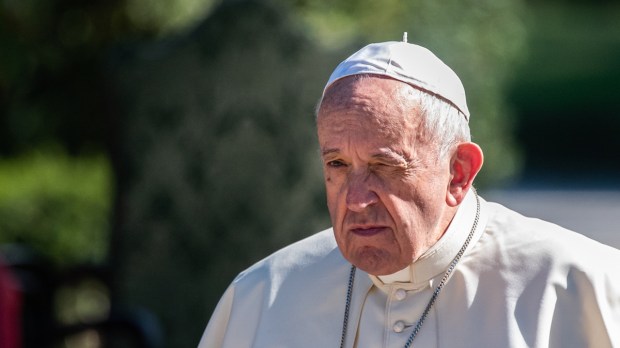Benedict XVI dedicated the 2010 World Day of Peace message to protecting the environment.
In that message, he lists a range of environmental issues – from climate change to the pollution of rivers – and notes:
“All these are issues with a profound impact on the exercise of human rights, such as the right to life, food, health and development.”
Francis often quotes his predecessor in Laudato Si’, his 2015 encyclical generally referred to as an environmental document.
But Francis says that Laudato Si’ should be viewed as a social encyclical: that is, a document addressed to the situation and needs of human society.
It would thus be alongside the other social encyclical from Pope Francis, his 2020 Fratelli Tutti, meaning that the Pope sees both of the encyclicals that he has penned as properly social encyclicals. (He released Lumen Fidei at the start of his pontificate but noted that he had simply finished the work already begun on that document by Benedict XVI).
The Pope made this case in an interview with Argentina’s national news agency, released July 1:
-Everything is connected, it is harmonious. It is impossible to think of humankind without nature and it is impossible to think of nature without humankind. Just like that passage in Genesis: “Grow, multiply and fill the Earth.” Filling the Earth is being in harmony with it, to make it fruitful. We must have that vocation.
The Pope went on to speak of an expression used by the indigenous peoples of the Amazon rainforest: “living well.” He contrasted it with “having a good time” of “dolce vita.”
“To them, living well is living in harmony with nature,” he said.
When people told me that Laudato si’ was a nice environmental encyclical, I replied, “No, it is a social encyclical.” We cannot separate the social and the environmental aspects. The lives of men and women take place in an environment.
I think of a Spanish saying – I hope it is not too vulgar: “He who spits toward the sky is spitting on his own face.” This is what abusing nature is about. Nature will pay us back.
Again: Nature never forgives, not because it is vengeful, but because we set in motion processes of degeneration that are not in harmony with our being.

